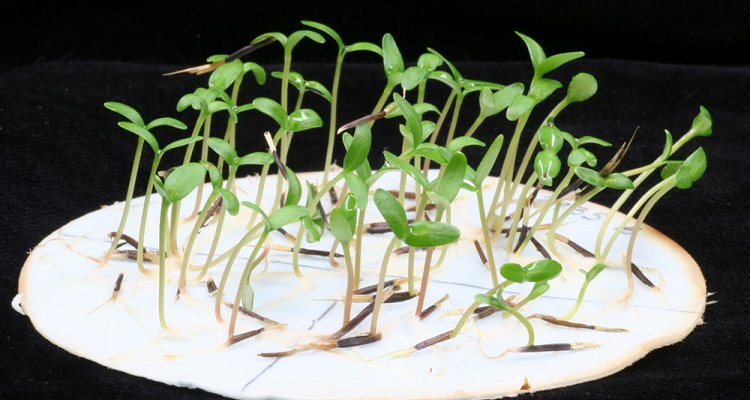
Research and training in seed technology
Wageningen University & Research provides top quality research, training and education in seed technology to companies, governmental bodies and NGOs. In doing so we support organisations around the globe in improve and secure seed quality and, therefore, food production. This work is an excellent practical example of Wageningen University & Research’s mission to improve the quality of life.
Good seed quality essential for crop productivity
Seeds are the starting material for most crops and the use of good quality seeds is essential for crops to become established. High quality seeds deliver farmers a higher yield via seedlings with increased stress tolerance, an enhanced ability to compete with weeds and a better use of fertiliser and other inputs. Wageningen University & Research provides research and training in seed technology, and is developing innovative methods for upgrading seed lots and prolonging the shelf life of seeds.
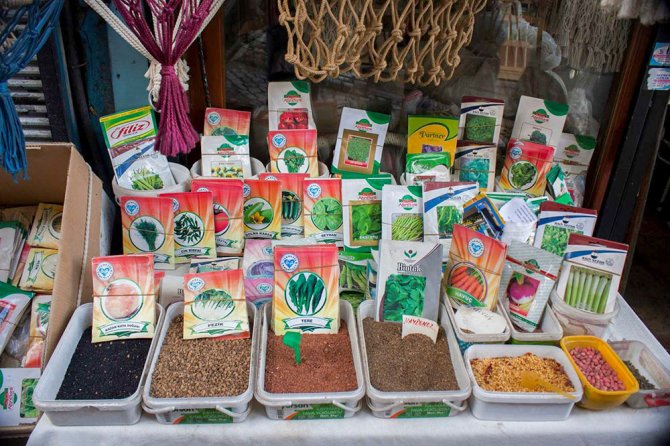
Seed storage and longevity
In itself it is remarkable that most seeds can be dried, stored and kept alive for a pretty long period of time. Unfortunately, however, the quality of the seeds declines during storage. This deterioration accelerates in moist and warm conditions such as the tropics. For this reason, commercial seed storage for the more expensive vegetable seeds requires relatively cool and dry conditions, with seeds being packed in hermetically sealed pouches.
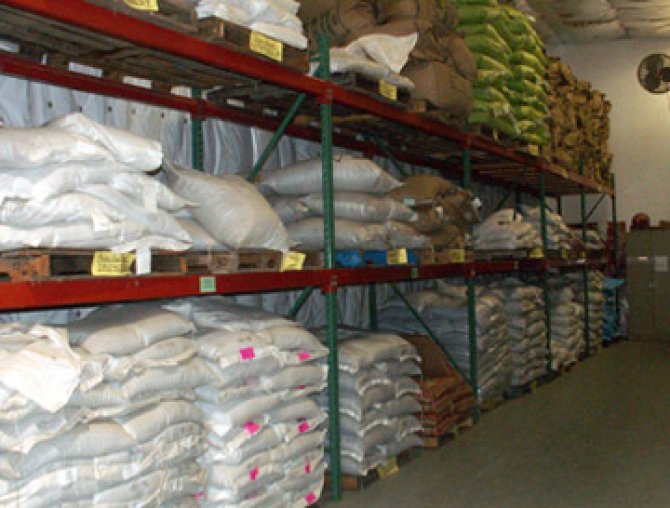
Since farmers do not have access to a climate-controlled room, Wageningen University & Research developed a simple farmers’ seed storage box containing a hygrometer and a desiccant to reduce quality loss.
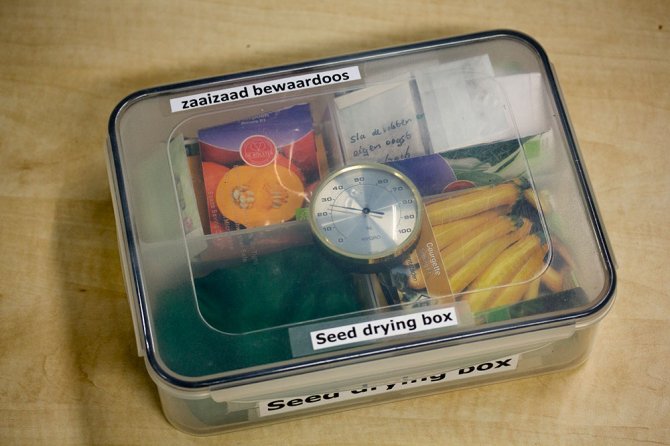
Reducing quality loss during seed storage
Cool and dry storage of seeds is relatively expensive. Moreover, seed companies have no control over the storage temperature when the seeds are at dealers or farmers. Wageningen University & Research scientists showed that seed longevity can be considerably extended by storing dry seeds under oxygen-free conditions. This technology has great potential for storage of seeds with a short shelf life and in the tropics, where cool storage is expensive or not even an option. Read more about Low oxygen seed storage

Genes for improved seed longevity
There is considerable variation between crops regarding how long seeds can remain viable during storage, a factor called seed longevity. Onion and lettuce seeds, for instance, have a relatively short longevity, while barley seeds can be stored for a much longer period under the same conditions. There can also be variation within crops, such as between cultivars. Wageningen University & Research studies which genes are important for seed longevity in rice, barley and in the model plant Arabidopsis.
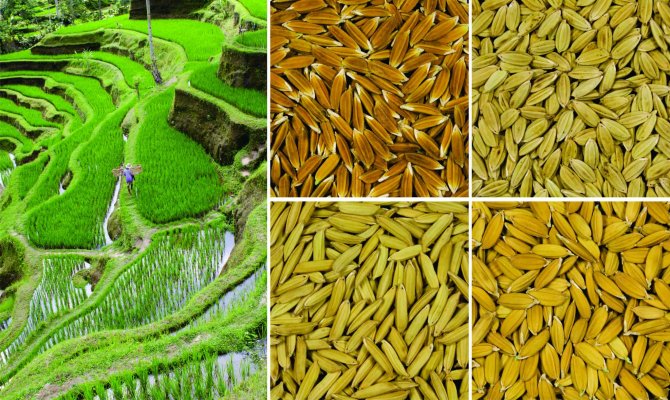
A more realistic test for seed longevity
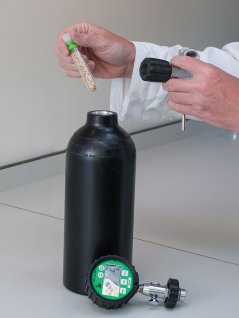
Longevity of seed lots, or shelf life, can vary between different seed production batches or as a result of seed treatments. Priming of seeds, a moist seed treatment to increase uniformity in germination, can have a very negative effect on shelf life. Good shelf life analysis is needed in order to optimise the priming treatment. Since storing under normal commercial conditions takes too long for research purposes, faster tests have been developed in which seeds are stored under moist and warm conditions to accelerate the deteriorating process. However, the physiology of the seeds in moist conditions is very different to when dry – and this causes a low correlation between the test results and the actual shelf life. Wageningen University & Research therefore developed an alternative seed longevity test for storage under dry conditions. The principle is to accelerate the ageing process by storing seeds under increased oxygen pressure while maintaining the moisture levels and storage temperature used in agricultural practice. More about High oxygen seed test
Innovations in seed sorting
By nature plants produce seeds with variations in behaviour and quality, while farmers need seed lots with a high degree of uniformity. An increasing number of techniques are now available for upgrading seed lots via sorting, priming or sanitation treatments. Wageningen UR developed a method for sorting seeds on maturity by analysing the residual level of chlorophyll in the seeds.
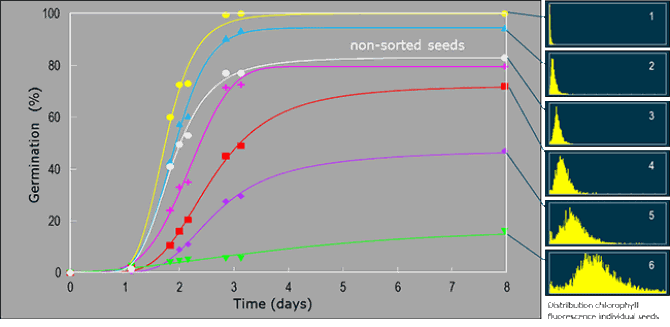
Technology transfer
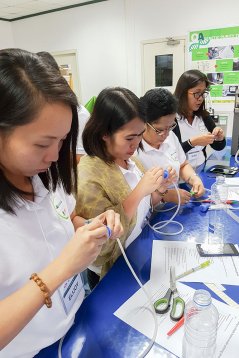
An important aspect of improving knowledge about seed quality is technology transfer via training at different levels, from farmers to the academic level and in both the public and private sectors. A good example is the international training module developed by Wageningen University & Research called ‘Capacity development in the application of improved seed technology, to promote high quality seeds’, which takes one week. Others include the Master Class on Seed Technology provided in Wageningen on a post-academic level and various possibilities for training in our lab in Wageningen or with on-site support.
High oxygen seed test
Wageningen University & Research has developed a test that is more realistic in estimating the longevity or shelf life of seeds under dry storage conditions. The test will help optimise seed treatments such as priming.

Low oxygen seed storage
Maintaining the quality of seeds as they gradually age in storage is a challenge. Wageningen University & Research has developed a low-cost technology to prolong the shelf life of seeds.